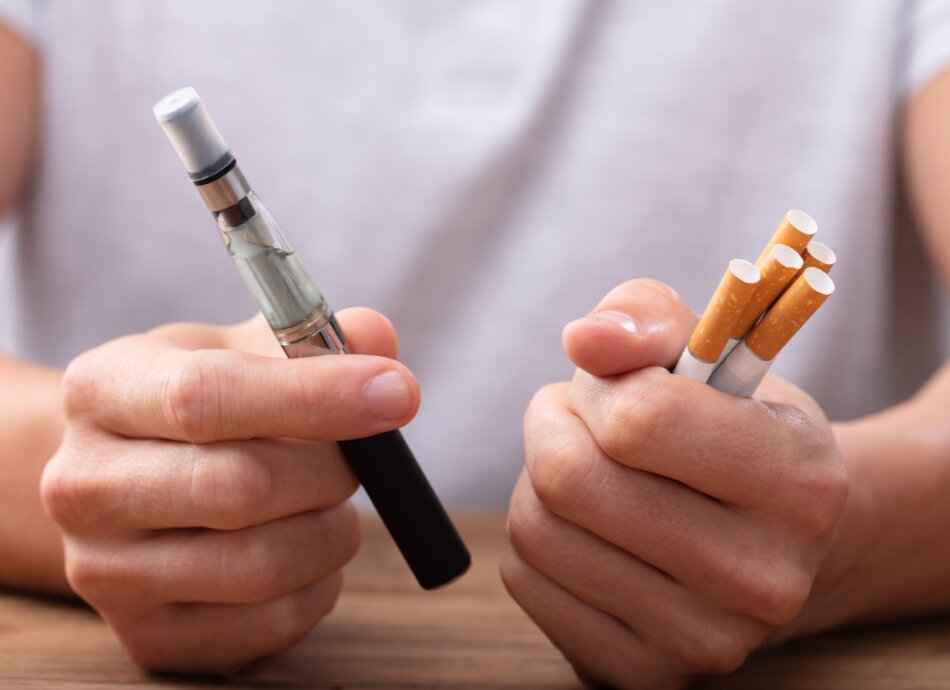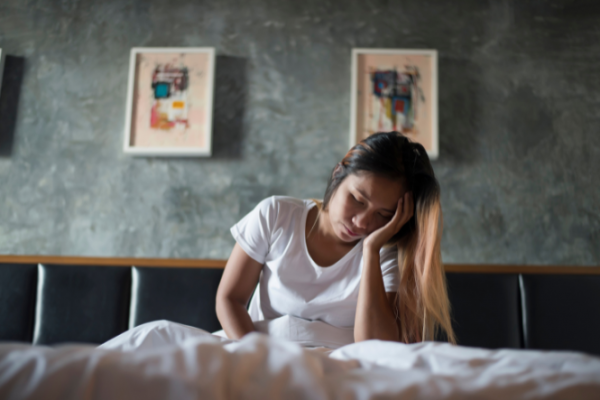You can now add Healthify as a preferred source on Google. Click here to see us when you search Google.
Sleep and nicotine
How does nicotine affect sleep?
Key points about nicotine and sleep
- Nicotine is in cigarettes, some vaping liquids or e-cigarettes and nicotine replacement therapy (NRT).
- Nicotine can cause sleep problems including taking longer to fall asleep, waking up more often during the night, sleep cycle disruptions, and decreased sleep quality – especially if you have a lot of nicotine.
- Learn more about how nicotine affects sleep.

Nicotine is highly addictive and is found in cigarettes, tobacco, e-cigarettes, and some vapes.
- Nicotine is a stimulant, that causes the release of several chemicals in your body, eg, serotonin, dopamine and gamma-aminobutryic acid.
- It can cause sleep problems, especially if you have a lot of nicotine. Problems can include:
- taking longer to fall asleep
- waking up more often during the night
- disruption of your sleep cycle
- poorer sleep quality.
- Nicotine can also increase your risk of obstructive sleep apnoea. It relaxes the upper airway muscles, increasing the likelihood that your airway will be obstructed (blocked) during sleep.
While nicotine can disturb your sleep, nicotine withdrawal and cravings can make you feel tired and cause insomnia, nightmares and parasomnias. When you quit smoking, your sleep patterns should gradually improve as the symptoms of nicotine withdrawal are temporary. The worst symptoms generally occur about 2 to 3 days after quitting. Daytime tiredness tends to slowly get better during the first 20 days after quitting.
Nicotine replacement therapy (NRT) can also affect sleep. NRT is used to help people quit smoking and vaping by providing your body with a small amount of nicotine. Nicotine gum, patches, and lozenges can reduce the symptoms of nicotine withdrawal and can also cause sleep problem when you first start taking them, but this gets better with time. Remember the benefits of using NRT far outweigh the risks of continuing to smoke or vape.
As well as containing nicotine, cigarettes deliver other harmful toxins.
- The chemicals in cigarettes can damage your lungs, decrease the amount of oxygen in your body, and increase the amount of inflammation and fluid in your upper airway. This can make it difficult to breathe properly, especially when you're sleeping. This can cause snoring and sleep apnoea.
- Some smokers may have trouble sleeping because the craving for a cigarette is so strong it wakes them up at night.
- Smoking can cause sleeping problems for those you live with, too. Children are at high risk of respiratory and sleep problems if they live with someone who smokes.
- You won’t see improvements in your sleep right away when you stop smoking. You may have even more trouble sleeping but this is temporary and your sleep will start to improve.
A 'vape' or an 'e-cigarette' is a device that heats vape liquid to create a vapour that is inhaled and exhaled. Vape liquid often contains nicotine and other chemicals and flavours, but you can get vape liquid that's nicotine free. The amount of nicotine depends on the strength of e-liquid you choose, and how you vape.
This means vaping can cause a lot of the same side effects as nicotine. Also, vaping is convenient, portable, and quicker to use. This can mean you're getting nicotine more regularly throughout the day. This leads to a higher daily nicotine intake overall making sleep problems worse.

Image credit: Canva
References
- Nicotine and sleep(external link) Sleep Foundation, Australia
Credits: Sandra Ponen, Healthify Pharmacist. Healthify is brought to you by Health Navigator Charitable Trust.
Reviewed by: Angela Lambie, Pharmacist, Auckland
Last reviewed:





